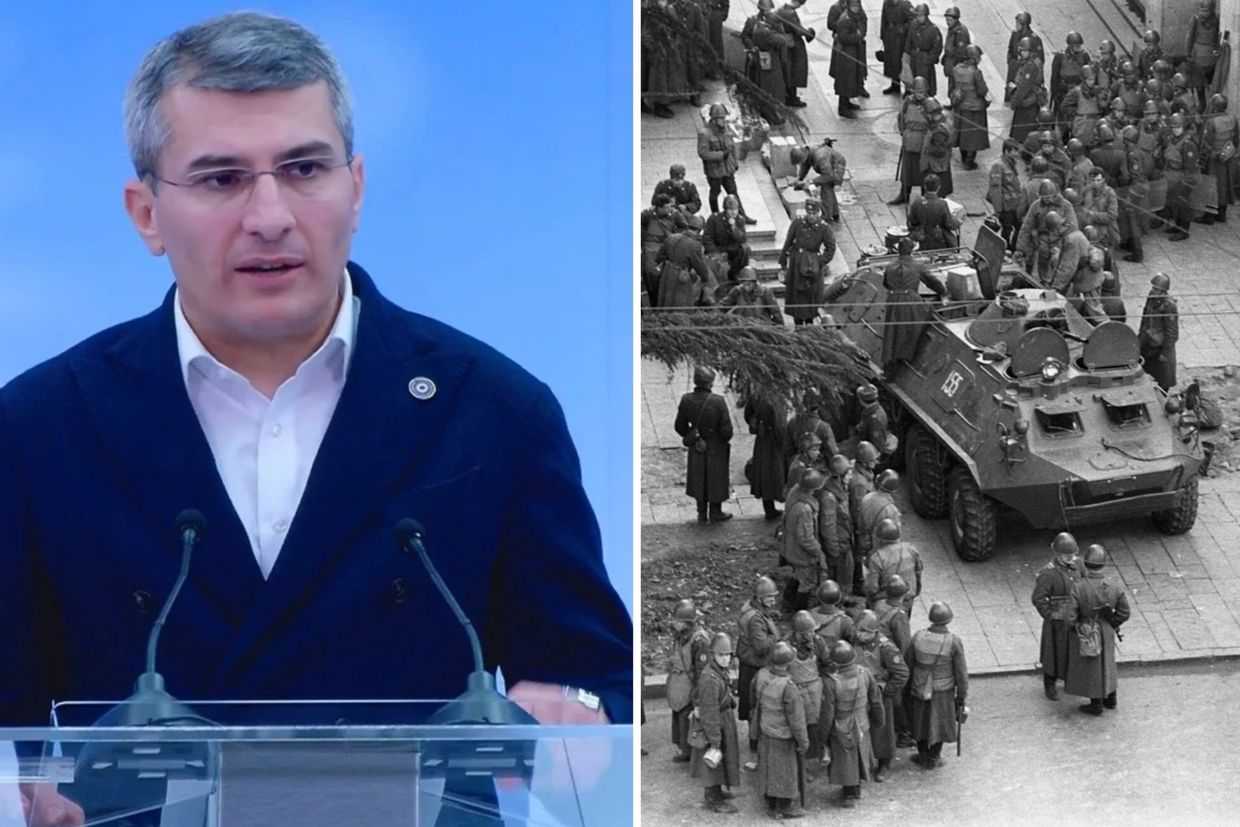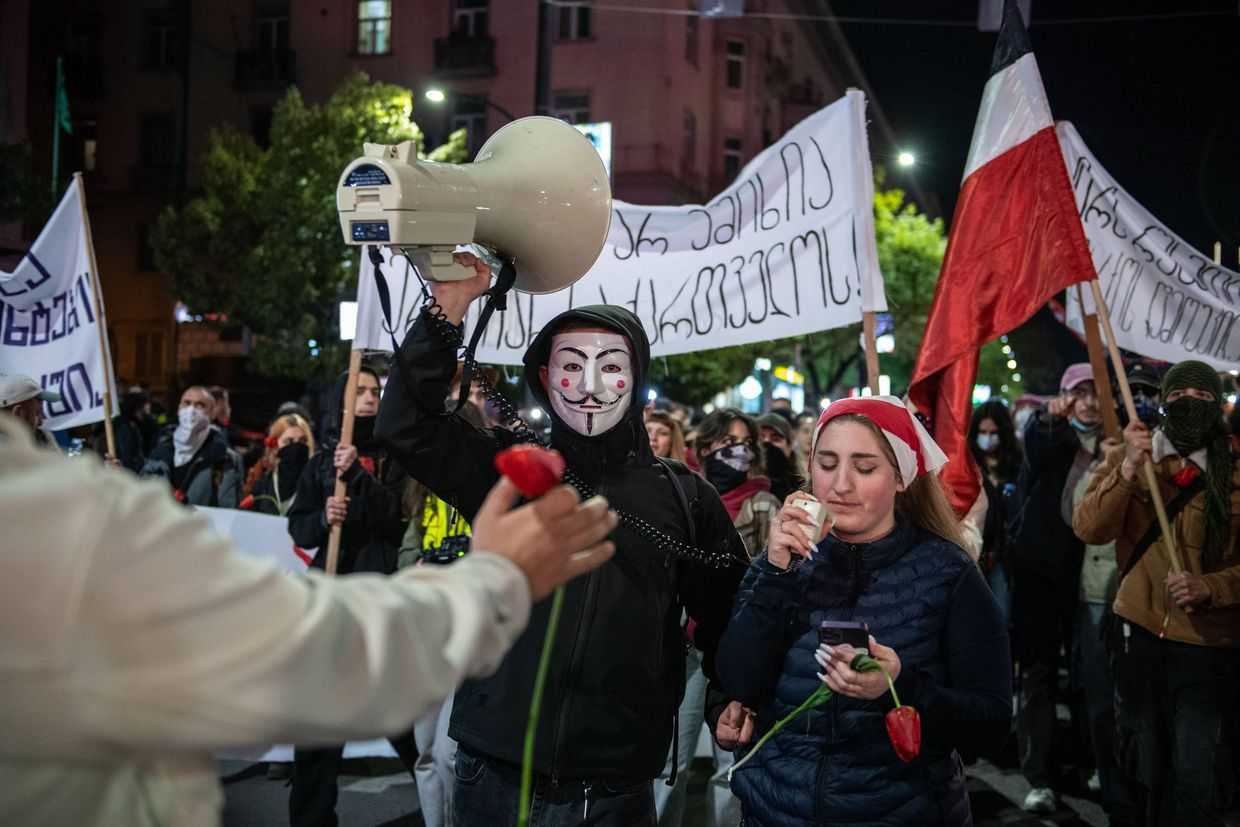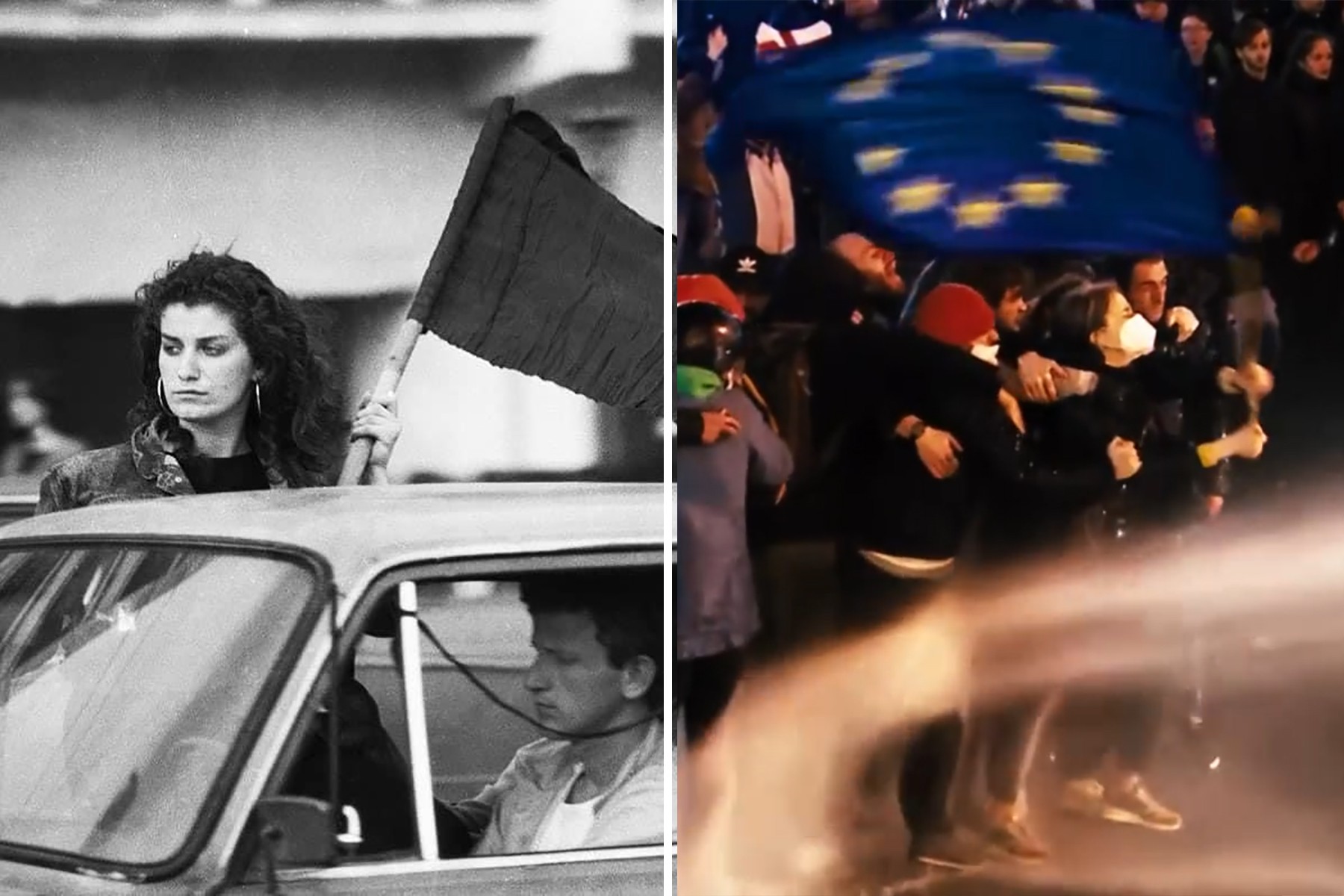
Two women whose images holding flags have become symbols of protest in Georgia have been awarded the Medal of Honour by President Salome Zurabishvili.
At a ceremony commemorating the 34th anniversary of the 1989 Soviet massacre of protesters on 9 April, the president paid tribute to Nana Makharadze, whose image holding a black flag became a symbol of Georgia’s struggle for independence.
The president also awarded 47-year-old Nana Malashkhia for her role in the protests in March against a proposed foreign agent law being pushed by the ruling party.
Footage of Malashkhia continuing to wave the flag of Europe during the 8 March rally despite being repeatedly hit by a water cannon was seen throughout the world.
Footage of Nana Malashkhia waving the flag of Europe compiled by Batumelebi. Footage by Formula.
‘This award is not personal’, President Zurabishvili said at the ceremony on Sunday. ‘This is dedicated to all women — the women of 9 April, those who fought for Georgia’s independence and future in this and other periods. These two are the faces of it.’
‘Nana Malashkhia was awarded the Medal of Honor for demonstrating a strong and active civil position in the struggle for the European future of Georgia’, Zurabishvili wrote on Facebook following the ceremony.
Protests rocked Tbilisi for two nights in a row in early March, against foreign agent bills being pushed by the ruling Georgian Dream Party. The bills were largely seen in Georgia and abroad as tools to crack down on civil society and the media. Following the protests, the government dropped its support for the law.
Malashkhia thanked the president for ‘standing with the citizens of Georgia today and for understanding well the demand of our people to become a member of the European family where there is an independent and fair court, free from politically motivated decisions, where media freedom, women’s rights, minority rights are fully protected, along with many other good things.’
According to the president, none of the women MPs from the ruling Georgian Dream party attended the ceremony.
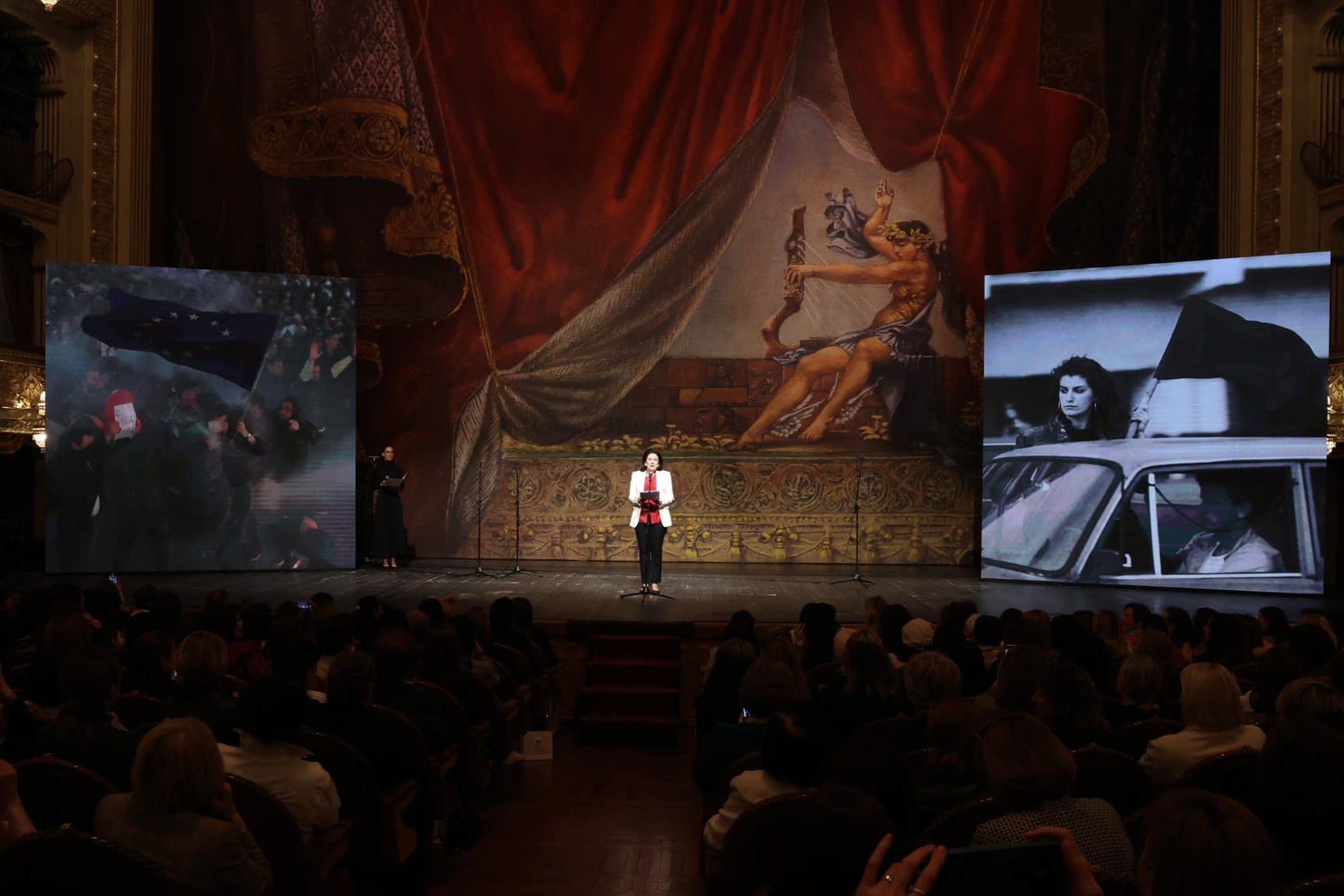
Nino Tsilosani, who chairs parliament’s Gender Equality Council, told RFE/RL that she didn’t attend because of the President’s criticism of the ruling party.
‘I think that after the speech that the president gave in the parliament, how many times she falsely accused the government of her country of Russian rhetoric, my place is not in events supporting her’, Tsilosani said.
Addressing parliament on 31 March, Zurabishvili said the government’s policy of ‘non-provocation’ towards Russia had damaged relations with Europe.
‘For truth, freedom, and the future of my country’
In her post on Facebook, President Zurabishvili said she had awarded Nana Makharadze ‘for showing a strong civil position in the national liberation struggle for the independence of Georgia and raising the patriotic spirit of society’.
The image of Makharadze holding a black flag out of a car window became a symbol of the 9 April tragedy and the wider independence movement.
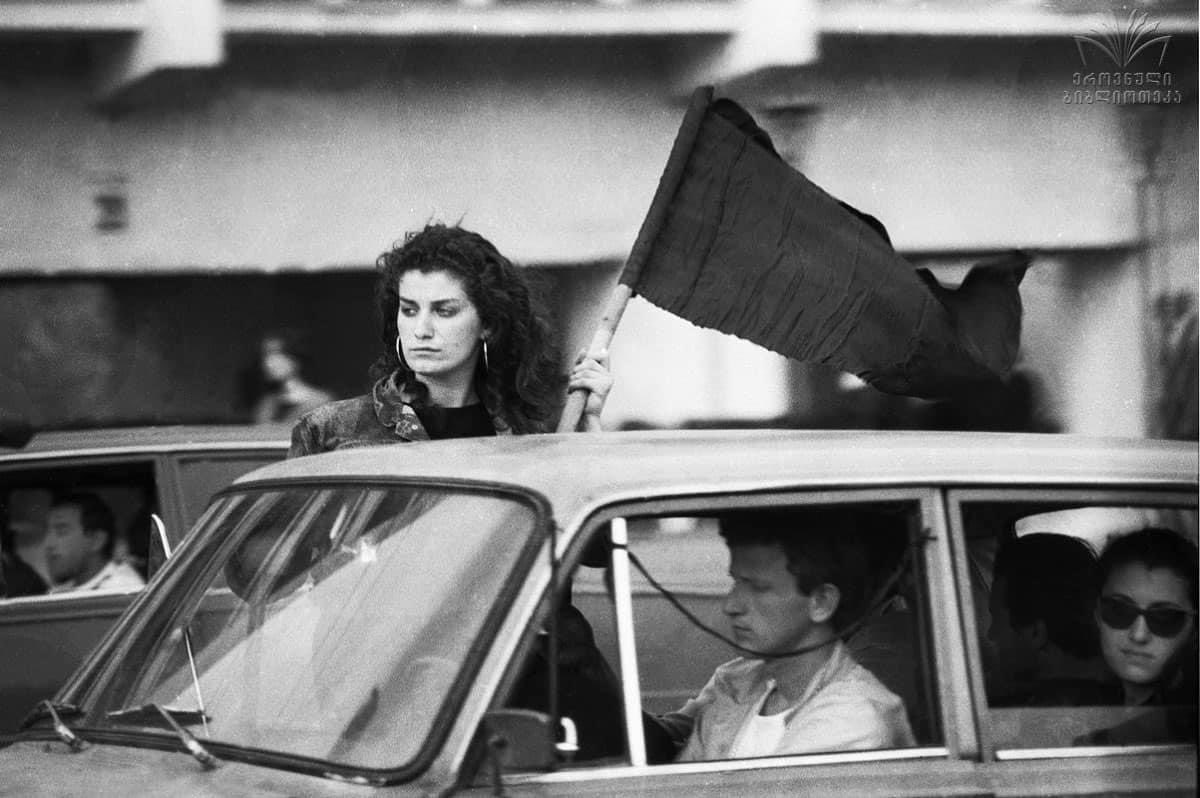
Twenty-one people were killed and hundreds more injured on 9 April 1989, after Soviet troops moved in on a peaceful independence demonstration, beating people with shovels and releasing an unknown gas to disperse the protesters.
Two years later, on 9 April 1991, the Supreme Council of the Georgian SSR announced the restoration of Georgia’s independence.
Makharadze, also spoke of the overwhelming desire of Georgians to join the EU in her acceptance speech.
‘That 19-year-old girl still lives in me and I am proud to have stood where there was truth, freedom, and the future of my country. We continue to fight and our future is, of course, in Europe.



